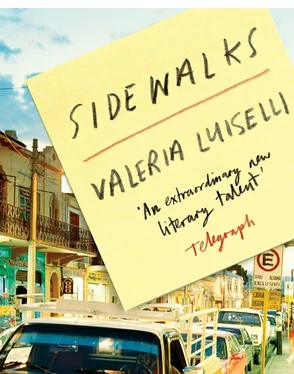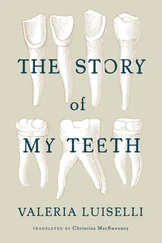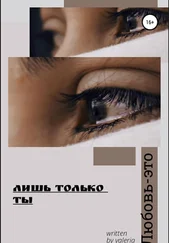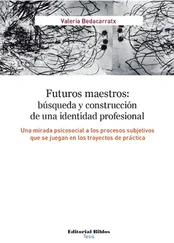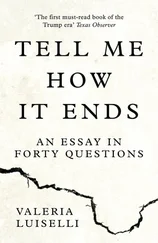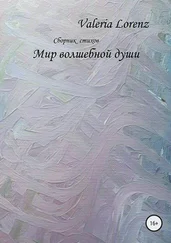Left again at Jalapa
Saudade is a child with a bad squint: he looks ahead with one eye and back with the other. When the right eye urges him to move forward, the left exhorts him to go back. That’s why he remains forever motionless in his place and the only steps he’s allowed are the ones the soul takes around itself.
Tabasco — make a right — ride against traffic
Sara says that Fernando Pessoa is the personification of saudade. Could be. Over dinner, we read aloud randomly chosen fragments from The Book of Disquiet, which has been lying around the house for more than a month — sometimes in her bedroom, sometimes in mine, often in the kitchen, almost always in the bathroom. As she reads, I imagine Pessoa, standing at the window of his small attic, on the fourth floor of a house in Lisbon’s Biaxa district, looking down over the haphazard agglomeration of roofs in the tawny evening light. If he were to go down the stairs to the street, he’d perhaps cross to the other sidewalk to buy a packet of fresh tobacco; in the doorway he’d meet Esteves, who would nod in greeting. But, ever ill prepared for spontaneous meetings, Pessoa wouldn’t be able to look him in the eye. If, on leaving the establishment, he were then to walk down to Rua dos Douradores and on to La Travessa do Almada, he’d pass the office where his boss, Senhor Moitinho de Almeida, would be waiting for him to arrive at half past eight on the dot the following morning. Stopping off for a short time in the restaurant that now bears his name, he’d see Bernado Soares, with whom he would have a glass of wine and a bowl of kale and chicken soup. Continuing along the street to Rua do São Mamede, he’d go up the steps at São Crispim and, a few meters farther on, reach Rua da Saudade. Maybe there, leaning over a balcony, he’d discover another of his heteronyms: a melancholic South African from Cape Town, a professor of English literature, specialist in the mysteries of the iambic pentameter. But Pessoa doesn’t move away from the window — as I don’t really move from my spot while I write.
I invoke myself and find nothing.
I go to the window and see the street in absolute clarity .
I see the shops, see the sidewalks, see the cars passing by .
I see the live, clothed beings passing each other by .
I see the dogs, which also exist .
And all this weighs me down .
And all this is foreign, like everything .
Calle Mérida — make a left — ride on the sidewalk — stop
“Perhaps what is inexpressible (what I find mysterious and am not able to express) is the background against which whatever I could express has its meaning,” wrote Wittgenstein somewhere. The same may be true of words that resist comprehension.
If I were to leave my apartment now, I’d ride my bike to the Librería del Tesoro. I’d chain it to a lamppost and go into the book-store, looking for a Portuguese dictionary. It would start raining outside, as it always does on September afternoons. I’d eventually find the dictionary, look for the word, and maybe read:
Saudade: streets, cracked sidewalks, archipelagos of dog shit, the leprous walls of old buildings, the concrete sadness of a bicycle ride around the Colonia Roma at the violet hour.
I’d buy the dictionary — go outside and put it in the basket of my bike — dry the saddle a little with my sleeve — unlock the chain. I’d make my way back home. Sometimes I’d ride in the street — sometimes, on the sidewalk.
A man was killed on the sidewalk, near the door of our building. A single bullet in the back — at waist level. The head fell first. A sharp crack of the skull on the concrete — the sidewalk still damp from the afternoon rain. The head doesn’t break as easily as the thread that ties us: it remained intact — the hair gelled back — a perfect hairdo. The teeth — visible — protruding like those of a child with a slight mental retardation. The following day his outline appeared in white chalk on the asphalt. Did the hand of the person who skirted the coastline of his body tremble? The city, its sidewalks: an enormous blackboard — instead of numbers, we add up bodies.
Use alternative routes
There’s a man down there, in the courtyard of the building, who’s rhythmically hitting a chisel with a mallet. He’s been at it for several hours. At eight in the morning, I went down to ask him what he was doing and, like someone stating the obvious, he said: Working. I didn’t bother to ask the next question — the one that was really worrying me — and went back inside. I’d been standing under the shower for a few minutes before I realized that the surface of the shared courtyard we cross every day to go out into the street wouldn’t be there when I next opened the door of our apartment.
I haven’t yet felt like looking out into the courtyard. I wonder how we’ll manage to get out of here — if perhaps the man will improvise a bridge with wooden planks or if he’ll at least reach out a hand to help us across; if the cavity under the now nonexistent surface will be deep; if it’ll be like that forever or if the last summer rains will end up turning our building into a blue concrete island surrounded by gray waters.
The sound of metal hitting stone doesn’t stop and, as the threat of the gaping hole in this courtyard grows, in some other part of the city they are breaking up a sidewalk; in another, someone is knocking down a wall; and in the small, rounded head of a child, gently resting against the window of a metro carriage, the crack of an idea opens up — the fissure of a new word.
Bridge under repair
When I returned to live in Mexico at the age of fourteen, after twelve years away, I spoke Spanish correctly but not well. I was able to say a phrase but not twist it around, take it apart. The Spanish I spoke belonged to slow, dispassionate conversations around the family breakfast table. The Spanish spoken by people in the street was a living language, rapid and vibrant, and I found it impossible to get my teeth into it. I stuttered, I trembled when I spoke, suddenly went gravely silent in the middle of a sentence. My language was full of holes.
Men at work
If the cranium were what it seems to be — a hemispherical receptacle, a cavity, a reservoir — learning would be a way of filling an empty space. But that’s not what actually happens. It’s possible to imagine that every new impression digs another hole, bruises the unformed material a bit, empties us out a little more. We’re born full of something — gray matter, water, blood, flesh — and in all of us, at every instant, the slow alchemy of erosion and loss is at work.
Language breaches our direct relationship with the world and words are an attempt to cross the unbridgeable gap: “Mama” cements a fragile bond with the now unattainable breast and “Me” is a mere echo of that face of mine on the other side of the mirror. In prelinguistic infancy, when the shadow of syntax hasn’t yet eclipsed the radiance of the world, the rumbling of r s and the murmuring of m s are enough to say everything. A child, before it can talk, speaks the world — speaks it to himself — with a pointing finger and babbling. But one day the soft sound of the m becomes attached to the a , and is repeated— mama . Then, something snaps. The moment we pronounce the name of that bond, our first and most intimate one, some link with the world is broken.
Names are the glove covering a prosthesis, the wrapping of an absence. A child who learns a new word acquires a bridge to the world, but only in compensation for the chasm that opens up within him the moment that word is imprinted there. Almost all of us have heard the story about our first “Mama” (and we know that the interest of the person hearing it is usually inversely proportional to the enthusiasm of the one who relates the anecdote) but I imagine that very few of us have firsthand memories of our initial unsteady steps through language. Some people compare this initial learning experience with the ecstasy of a creative force inventing a universe. Children, they say, are like poets of Esperanto: their words exist in perfect correspondence with the world.
Читать дальше
